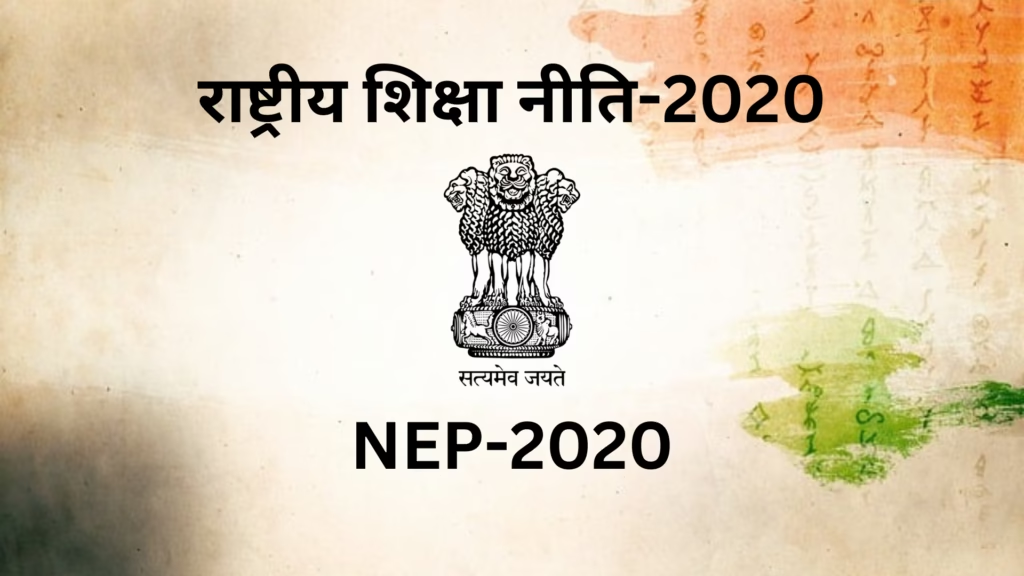The National Education Policy (NEP) 2020 represents a significant change initiated by the Indian government aimed at overhauling the educational framework of the nation.
Ratified on July 29, 2020, NEP 2020 supersedes the National Policy on Education (NPE) from 1986, providing a revised outlook geared toward transforming India into a center for global knowledge.
The policy prioritizes comprehensive, adaptable, and cross-disciplinary education, ensuring learners cultivate critical analysis, innovation, and practical abilities.
With a robust emphasis on Indian cultural values and enhancing global standing, NEP 2020 aims to revamp both school and higher education by embedding technology, and skill-oriented training, and ensuring widespread access to quality education.
Key Features of NEP 2020
Reform in School Education
Innovative 5+3+3+4 School Framework NEP 2020 replaces the conventional 10+2 education system with a new, age-appropriate framework of 5+3+3+4, tailored to match children’s cognitive growth:
1. Foundational Phase (5 years)
- Age Range: 3 to 8 years
- Grades: Preschool (3 years) + Grades 1 and 2
- Emphasis: Learning through play and activities and foundational literacy and numeracy skills.
2. Preparatory Phase (3 years)
- Age Range: 8 to 11 years
- Grades: 3 to 5
- Emphasis: Engaging learning experiences with a stronger focus on language development, numeracy, and scientific reasoning.
3. Middle Phase (3 years)
- Age Range: 11 to 14 years
- Grades: 6 to 8
- Emphasis: Introduction of subject-focused education, analytical reasoning, and vocational training starting from Grade 6.
4. Secondary Phase (4 years)
- Age Range: 14 to 18 years
- Grades: 9 to 12
- Emphasis: Interdisciplinary education, analytical reasoning skills, and the ability to choose subjects freely.
Multilingual Learning & Medium of Instruction
- Mother tongue or regional language will be the medium of instruction (ideally up to Grade 5, and preferably up to Grade 8).
- The three-language policy will remain active, promoting the learning of at least two Indian languages.
- Sanskrit and classical languages will be incorporated at all educational levels.
Curriculum & Assessment Innovations
- Simplified syllabus focusing on understanding concepts over rote learning.
- Enhanced emphasis on analytical skills, experiential education, and hands-on knowledge.
- Revised examination systems:
- Board exams will assess applied knowledge rather than mere memorization.
- Implementation of ongoing assessment with regular monitoring of progress.
- PARAKH (Performance Assessment, Review, and Analysis of Knowledge for Holistic Development) will establish assessment standards.
Skill Acquisition & Vocational Training
- Vocational training and internships will commence from Grade 6.
- Coding and computational skills should be included within the school curriculum.
- Strong focus on experiential learning, incorporating internships with local businesses and artisans.
Comprehensive Report Card
- The new report card will encompass more than just numerical grades:
- Highlighting the student’s talents, interests, and participation in extracurricular activities.
- Incorporating self-evaluation, teacher assessments, and feedback from peers.
Reforms in Higher Education
Multidisciplinary and Adaptable Learning
- Learners have the freedom to mix subjects across diverse disciplines (for instance, combining science, commerce, and arts).
- Institutions will provide multidisciplinary qualifications (for example, engineering students will be allowed to enroll in humanities classes).
Various Entry & Exit Pathways
- Pupils have the opportunity to exit and re-enter courses without forfeiting advancements:
- Exit after one year → Acquire a Certificate
- Exit after two years → Earn a Diploma
- Exit after three years → Obtain a Bachelor’s Degree
- For a four-year curriculum, → Attain a Bachelor’s Degree in Research
Academic Credit Repository (ABC)
- Learners can accumulate and transfer credits obtained from different educational establishments.
- Promotes continuous education and mobility among universities.
Unified Higher Education Regulator
- The Higher Education Commission of India (HECI) will take over from UGC, AICTE, and other oversight organizations.
- There will be four self-sufficient branches:
- National Higher Education Regulatory Council (NHERC) – for oversight.
- General Education Council (GEC) – for assuring academic quality.
- Higher Education Grants Council (HEGC) – for financial support.
- National Accreditation Council (NAC) – for certification.
International Institutions in India
- The top 100 universities worldwide will have the opportunity to establish campuses within India.
Teacher Preparation and Recruitment
- Comprehensive teacher preparation through B.Ed courses (minimum four years duration).
- Consistent training sessions and workshops aimed at enhancing teachers’ professional skills.
- Promotions and rewards based on performance.
Digital and Online Learning
- Growth of e-learning via platforms like DIKSHA, SWAYAM, and the National Digital Library.
- Creation of a National Educational Technology Forum (NETF) to enhance digital frameworks and e-learning techniques.
- Schools and higher education institutions will be urged to adopt AI-driven educational tools and virtual laboratories.
Education that is Inclusive and Fair
- Specific emphasis on underprivileged demographics (SC, ST, OBC, EWS, and students with disabilities).
- Implementation of a “Gender Inclusion Fund” to advance girls’ education.
- Programs for adult education aimed at increasing literacy levels.
Emphasis on Indian Knowledge Paradigms
- Encouragement of traditional Indian knowledge, the arts, and cultural heritage in educational content.
- Fusion of Ayurveda, Yoga, and Sanskrit into the curriculum.
- Research focused on Indian languages and Vedic sciences.
Execution and Challenges
Although NEP 2020 is a forward-thinking initiative, its effective realization hinges on:
- Development of infrastructure – particularly in rural educational settings.
- Equipping educators with training in innovative teaching techniques.
- Creating digital assets for online learning.
- Providing financial and policy backing for successful implementation.
Conclusion
The National Education Policy 2020 represents a significant and revolutionary effort to update the educational landscape in India. It fosters adaptability, skill-oriented education, comprehensive growth, and inclusivity. With vigorous implementation, NEP 2020 will prepare learners with skills necessary for the 21st century, enhancing their global competitiveness while honoring Indian heritage.
NEP 2020 envisions “Education for Everyone,” ensuring that every child, regardless of their circumstances, receives quality education and plays a role in the nation’s development. The policy establishes a robust groundwork for India’s future as an economy driven by knowledge.


